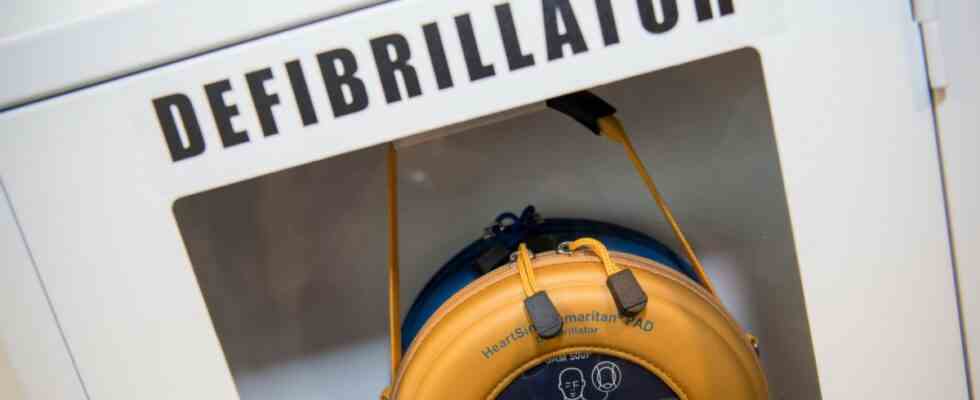Climate change presents cities and communities with challenges that are not necessarily apparent at first glance. Among other things, whether enough defibrillators are available in all districts. Because experts assume that global warming will increase heat-related heart attacks. Authorities therefore want to make the devices that first responders can use to revive the patient in the event of a cardiac arrest available everywhere as far as possible. Many devices are now freely accessible in central places so that they are quickly to hand.
At the beginning of this year, the Augsburg administration created a “climate change adaptation concept” and dealt with it, for example, with the density of defibrillators in Bavaria’s third largest city. The city center is “very closely meshed” with technical lifeguards, the report said. “On the other hand, there are very few devices in western Augsburg, in Kriegshaber and in Pfersee,” was the assessment of outlying districts.
Ultimately, the defibrillators are just a detail. Municipalities need to look at many more aspects to face the challenges that heat and drought bring. This summer, with its rare rainy days and recurring hot spells, gives a glimpse of what’s to come.
Between 2019 and 2021, the State Office for the Environment created a “protective goods map climate/air” so that the authorities have a factual basis for future decisions. In this study, “climate change-related heat stress on people was examined for the whole of Bavaria for the first time,” reports the state office. The map shows which areas are already affected and how the problem will worsen. Data was calculated for the two scenarios of weak and strong climate change.
Air corridors are an important topic
In the future, the map is to be used everywhere in so-called landscape framework planning. This was recently used when preparing an environmental report for a planned commercial area on Autobahn 9 in Allershausen (district of Freising). The issue was whether the commercial zone would impede winds and air currents in neighboring residential areas. There could be certain restrictions, but no significant changes, it said. “A slight increase in the air temperature of individual Kelvin cannot be ruled out with the reduced air exchange near the ground in cold air conditions,” was specified in the local environmental report.
Because the question of air corridors in towns is one of the most important issues in order to prevent inner cities from overheating. “In order to maintain a healthy climate in settlement areas, to reduce the heating of the air, to prevent health-endangering heat stress and to reduce air pollution, the most unimpeded exchange of air possible with the open countryside must be guaranteed,” the Bavarian state development program therefore also demands.
This discussion is now also being conducted among the general public. This was evident in a referendum in Ingolstadt in July on the construction of a new theatre. Shortly before the ballot, it became known that the block of buildings could have negative effects on the ventilation of the city center. The critics of the planned Kammerspiele immediately had another argument against the project. Ultimately, the Ingolstadt rejected the new building with about 60 to 40 percent, now the city administration has to plan again.
In the nationwide study by the Environment Agency, nocturnal heat stress was also a particular focus. Because climate change has long since arrived in the bedroom. This is also shown by a study that the University of Ulm carried out with several partners in Augsburg in the summer of 2019. The apartment temperatures were measured in around 550 households, and more than 460 participants were asked about their problems with the heat. According to the final report, only 5.5 percent of those surveyed said they had never suffered from health problems during a heat wave. The measurements showed that it was often around 25 degrees warm in the bedrooms, sometimes more than 30 degrees. The value of 17 to 20 degrees recommended by the Federal Environment Agency was only occasionally reached.
Scientists therefore pay particular attention to the so-called tropical nights, when the thermometer outside at night does not fall below 20 degrees. In the particularly overheated city of Munich, for example, there are currently an average of around four tropical nights per year. In the case of weak climate change, the number of these hot nights in Bavaria could double, and in the case of strong climate change, quadruple, according to the investigation by the state authority.

